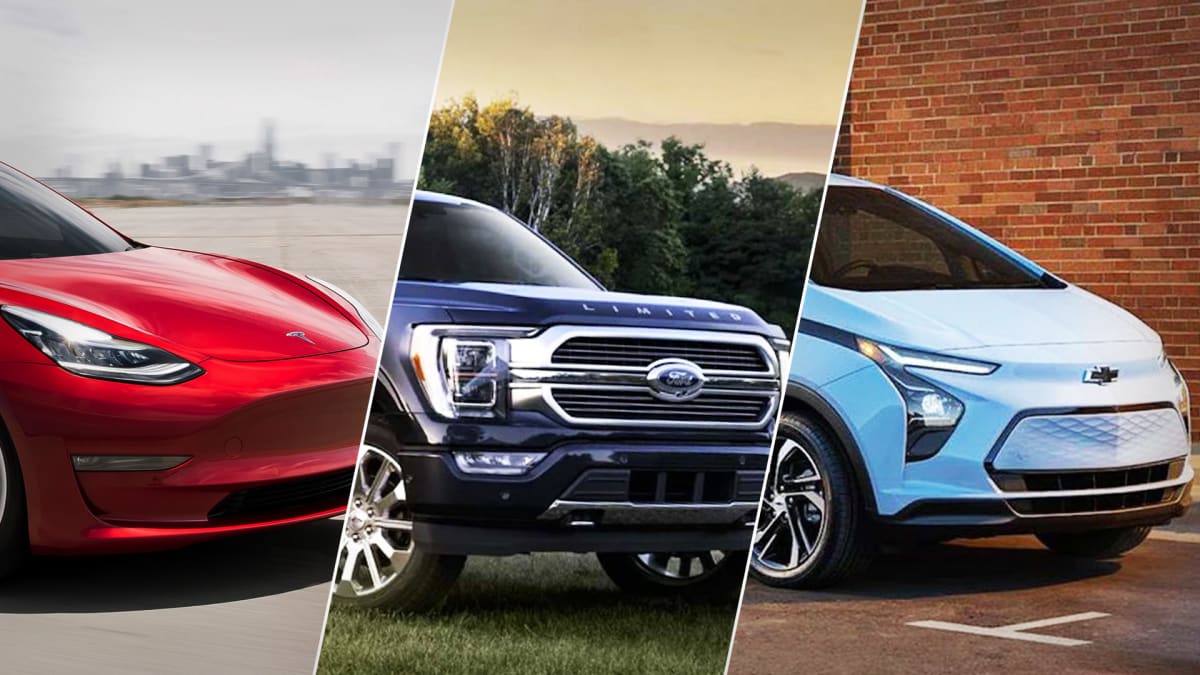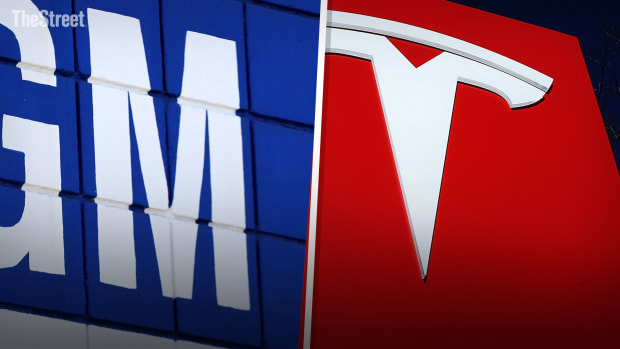
Bi-directional charging is not an entirely new concept. The idea is simple: an EV with bi-directional capabilities can both receive a charge and provide it. The Nissan Leaf can do it, as can the 2023 Fisker Ocean, Ford F-150 Lightning and Kia EV9, to name a few.
"Imagine this scenario: You come home from work with plenty of energy left in the battery, which has earlier been charged with cheaper and cleaner electricity. During the evening, your car can be plugged in and discharge energy when electricity prices are higher," Volvo said of the model last year. The result is a cheaper energy bill and a cleaner grid.
DON'T MISS: GM CEO Says New Deal Saved the Company $400 Million

Getty Images/TS
General Motors Explores Bidirectional Charging
General Motors, which just announced details for its coming Ultium Home energy products, is exploring bidirectional charging, something that even Elon Musk's Tesla cannot yet do.
GM's new Ultium offerings include three bundles: a simple energy storage bundle that doesn't require an EV, a home energy system that allows for both energy storage, as well as vehicle-to-home (V2H) charging and a V2H bundle designed for functionality rather than storage.
Customers will also be able to integrate solar power into the Ultium energy storage suite.
“As (GM) Energy’s ecosystem of connected products and services continues to expand, we’re excited to provide customers with options for greater energy management beyond the vehicle,” Wade Sheffer, vice president of GM Energy, said in a statement. “Our initial Ultium Home offerings represent an opportunity for customers to take greater control over their personal energy independence and resiliency.”
More Tesla:
- Why Tesla Stock Is Going Through the Roof -- And Where It Could Go Next
- Elon Musk's Latest Tesla Announcement Could Shake Up the Entire EV Industry
- Elon Musk Has a 'Purity' Around Motivation For Game-Changing EV Deal
GM did not say how much each Ultium Home bundle would cost, or when the products are scheduled to launch.
Tesla Has a Powerwall
(TSLA) offers a similar product, though without the V2H offering, called Powerwall. The product is a battery system that stores solar energy to provide backup power to keep customers' lights on when the power goes out.
The cost of a single Powerwall without incentives or solar installation is $8,700, a price Tesla says could drop to $5,917 after federal tax incentives. Tesla is currently offering a $500 rebate to those customers who purchase and install a Powerwall between now and Oct. 31.
Beyond energy storage, Musk said at Tesla's Investor Day in March that he expects his cars to be capable of bidirectional charging within the next two years, though he doesn't think it's something many people will take advantage of.
"I don’t think very many people are going to want to use bidirectional charging, unless you have a Powerwall," he said, "because if you unplug your car, your house goes dark, and this is extremely inconvenient."
GM recently followed Ford's lead in inking a deal with Tesla to provide its customers access to Tesla's North American Supercharger network.
GM shares were up a little more than 1% June 28.







